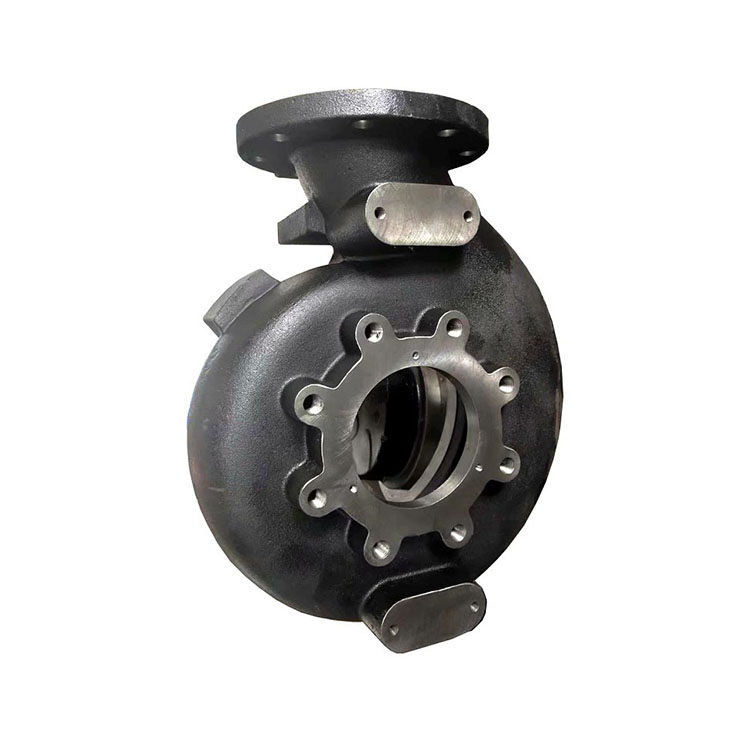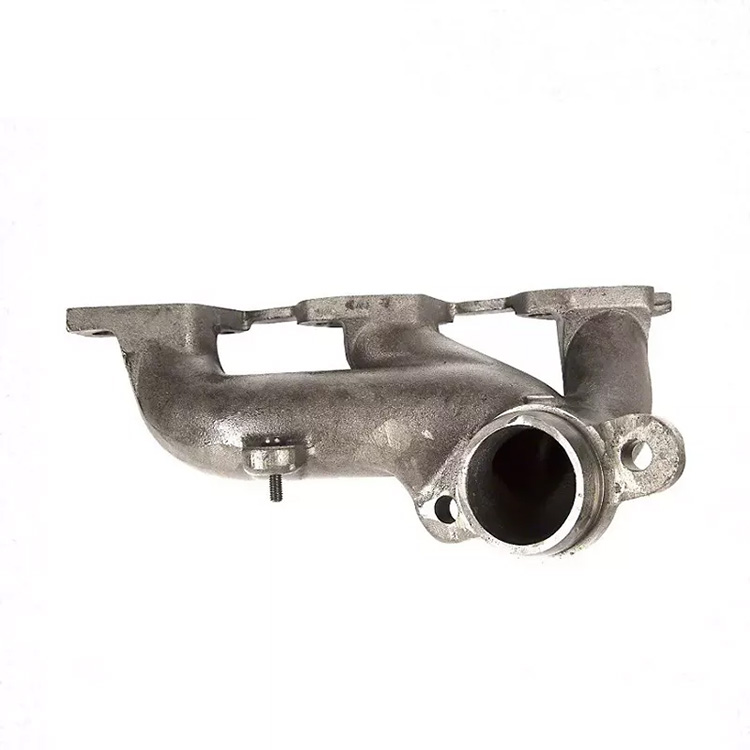Dandong Iron Casting Group is a professional stainless steel foundry in china. We can offer a wide selection of stainless steel investment casting service. Currently, casting stainless steel is one of the most versatile materials in the manufacturing industry, especially in relation to castings. Casting stainless steel is used in many automotive, marine, or other large electronics. We are an experienced stainless steel castings manufacturer, capable of producing high-strength cast stainless steel with high corrosion resistance and aesthetics of stainless steel.
The most common alloy types we process are listed below. Besides, we can pour other melt alloys according to your requirement.
304/304L investment casting
Type alloy 304 is the most versatile alloy in the stainless steel castings series. And it is ideal for a wide variety of household and commercial applications. 304 has excellent corrosion resistance and is easy to process and shape. It can be applied to various household and commercial applications, including: Kitchen workbenches, sinks, chemical containers, food processing equipment, automotive and aerospace applications, construction materials, architectural decoration and modeling, etc. (304L is very similar to 304 alloys, the difference is that the maximum carbon content of 304 alloy is 0.08%, while 304L is 0.03%. This “L” can be understood as low carbon.)
316/316L stainless steel casting
Compared with investment cast 316 stainless steel casting, the molybdenum in 316L stainless steel castings make it have higher corrosion resistance. It can resist atmospheric corrosion and has excellent resistance to inter-granular corrosion under welding conditions(cast 316 stainless steel properties). At high temperatures, 316 stainless steel casting has higher creep and tensile strength. It is commonly used in the paper industry, chemical and textile processing equipment, furnace parts, etc.
410
410 is a chromium martensitic stainless steel that can be heated to obtain a wide range of mechanical properties. Stainless steel casting 410 has high strength, hardness and good corrosion resistance. It is easy to extend and be formed. In addition, in all cases it is magnetic. It is commonly used in cutlery, petroleum refining, petrochemical processing, and marine environments, etc.
416
Alloy 416 series is high-chromium martensitic free-machining stainless steel. It has high strength and is easy to process. Type 416 stainless steel casting can be applied to axles, gears, valves, and lead screws etc. It is not recommended to apply to containers filled with gas or liquid under high pressure.
17-4 ph investment casting
17-4 ph investment casting is an age-hardening martensitic stainless steel that combines high strength and corrosion resistance. Hardening can be achieved after simple low-temperature treatment. 17-4 investment casting still has high tensile strength, hardness, oxidation resistance and good creep stress rupture performance at high temperatures. Compared with traditional martensitic stainless steel, 17-4 ph investment casting is more weldable. All that properties make it widely used in oil, natural gas, aerospace and other fields.

The most common alloy types we process are listed below. Besides, we can pour other melt alloys according to your requirement.
304/304L investment casting
Type alloy 304 is the most versatile alloy in the stainless steel castings series. And it is ideal for a wide variety of household and commercial applications. 304 has excellent corrosion resistance and is easy to process and shape. It can be applied to various household and commercial applications, including: Kitchen workbenches, sinks, chemical containers, food processing equipment, automotive and aerospace applications, construction materials, architectural decoration and modeling, etc. (304L is very similar to 304 alloys, the difference is that the maximum carbon content of 304 alloy is 0.08%, while 304L is 0.03%. This “L” can be understood as low carbon.)
316/316L stainless steel casting
Compared with investment cast 316 stainless steel casting, the molybdenum in 316L stainless steel castings make it have higher corrosion resistance. It can resist atmospheric corrosion and has excellent resistance to inter-granular corrosion under welding conditions(cast 316 stainless steel properties). At high temperatures, 316 stainless steel casting has higher creep and tensile strength. It is commonly used in the paper industry, chemical and textile processing equipment, furnace parts, etc.
410
410 is a chromium martensitic stainless steel that can be heated to obtain a wide range of mechanical properties. Stainless steel casting 410 has high strength, hardness and good corrosion resistance. It is easy to extend and be formed. In addition, in all cases it is magnetic. It is commonly used in cutlery, petroleum refining, petrochemical processing, and marine environments, etc.
416
Alloy 416 series is high-chromium martensitic free-machining stainless steel. It has high strength and is easy to process. Type 416 stainless steel casting can be applied to axles, gears, valves, and lead screws etc. It is not recommended to apply to containers filled with gas or liquid under high pressure.
17-4 ph investment casting
17-4 ph investment casting is an age-hardening martensitic stainless steel that combines high strength and corrosion resistance. Hardening can be achieved after simple low-temperature treatment. 17-4 investment casting still has high tensile strength, hardness, oxidation resistance and good creep stress rupture performance at high temperatures. Compared with traditional martensitic stainless steel, 17-4 ph investment casting is more weldable. All that properties make it widely used in oil, natural gas, aerospace and other fields.

Experience
Dandong Iron Casting Group is a professional stainless steel foundry in china. We can offer a wide selection of stainless steel investment casting service. Currently, casting stainless steel is one of the most versatile materials in the manufacturing industry, especially in relation to castings. Casting stainless steel is used in many automotive, marine, or other large electronics. We are an experienced stainless steel castings manufacturer, capable of producing high-strength cast stainless steel with high corrosion resistance and aesthetics of stainless steel.
The most common alloy types we process are listed below. Besides, we can pour other melt alloys according to your requirement.
304/304L investment casting
Type alloy 304 is the most versatile alloy in the stainless steel castings series. And it is ideal for a wide variety of household and commercial applications. 304 has excellent corrosion resistance and is easy to process and shape. It can be applied to various household and commercial applications, including: Kitchen workbenches, sinks, chemical containers, food processing equipment, automotive and aerospace applications, construction materials, architectural decoration and modeling, etc. (304L is very similar to 304 alloys, the difference is that the maximum carbon content of 304 alloy is 0.08%, while 304L is 0.03%. This “L” can be understood as low carbon.)
316/316L stainless steel casting
Compared with investment cast 316 stainless steel casting, the molybdenum in 316L stainless steel castings make it have higher corrosion resistance. It can resist atmospheric corrosion and has excellent resistance to inter-granular corrosion under welding conditions(cast 316 stainless steel properties). At high temperatures, 316 stainless steel casting has higher creep and tensile strength. It is commonly used in the paper industry, chemical and textile processing equipment, furnace parts, etc.
410
410 is a chromium martensitic stainless steel that can be heated to obtain a wide range of mechanical properties. Stainless steel casting 410 has high strength, hardness and good corrosion resistance. It is easy to extend and be formed. In addition, in all cases it is magnetic. It is commonly used in cutlery, petroleum refining, petrochemical processing, and marine environments, etc.
416
Alloy 416 series is high-chromium martensitic free-machining stainless steel. It has high strength and is easy to process. Type 416 stainless steel casting can be applied to axles, gears, valves, and lead screws etc. It is not recommended to apply to containers filled with gas or liquid under high pressure.
17-4 ph investment casting
17-4 ph investment casting is an age-hardening martensitic stainless steel that combines high strength and corrosion resistance. Hardening can be achieved after simple low-temperature treatment. 17-4 investment casting still has high tensile strength, hardness, oxidation resistance and good creep stress rupture performance at high temperatures. Compared with traditional martensitic stainless steel, 17-4 ph investment casting is more weldable. All that properties make it widely used in oil, natural gas, aerospace and other fields.

The most common alloy types we process are listed below. Besides, we can pour other melt alloys according to your requirement.
304/304L investment casting
Type alloy 304 is the most versatile alloy in the stainless steel castings series. And it is ideal for a wide variety of household and commercial applications. 304 has excellent corrosion resistance and is easy to process and shape. It can be applied to various household and commercial applications, including: Kitchen workbenches, sinks, chemical containers, food processing equipment, automotive and aerospace applications, construction materials, architectural decoration and modeling, etc. (304L is very similar to 304 alloys, the difference is that the maximum carbon content of 304 alloy is 0.08%, while 304L is 0.03%. This “L” can be understood as low carbon.)
316/316L stainless steel casting
Compared with investment cast 316 stainless steel casting, the molybdenum in 316L stainless steel castings make it have higher corrosion resistance. It can resist atmospheric corrosion and has excellent resistance to inter-granular corrosion under welding conditions(cast 316 stainless steel properties). At high temperatures, 316 stainless steel casting has higher creep and tensile strength. It is commonly used in the paper industry, chemical and textile processing equipment, furnace parts, etc.
410
410 is a chromium martensitic stainless steel that can be heated to obtain a wide range of mechanical properties. Stainless steel casting 410 has high strength, hardness and good corrosion resistance. It is easy to extend and be formed. In addition, in all cases it is magnetic. It is commonly used in cutlery, petroleum refining, petrochemical processing, and marine environments, etc.
416
Alloy 416 series is high-chromium martensitic free-machining stainless steel. It has high strength and is easy to process. Type 416 stainless steel casting can be applied to axles, gears, valves, and lead screws etc. It is not recommended to apply to containers filled with gas or liquid under high pressure.
17-4 ph investment casting
17-4 ph investment casting is an age-hardening martensitic stainless steel that combines high strength and corrosion resistance. Hardening can be achieved after simple low-temperature treatment. 17-4 investment casting still has high tensile strength, hardness, oxidation resistance and good creep stress rupture performance at high temperatures. Compared with traditional martensitic stainless steel, 17-4 ph investment casting is more weldable. All that properties make it widely used in oil, natural gas, aerospace and other fields.











